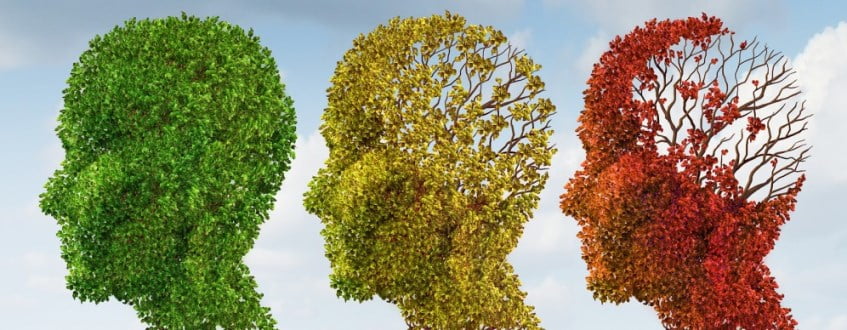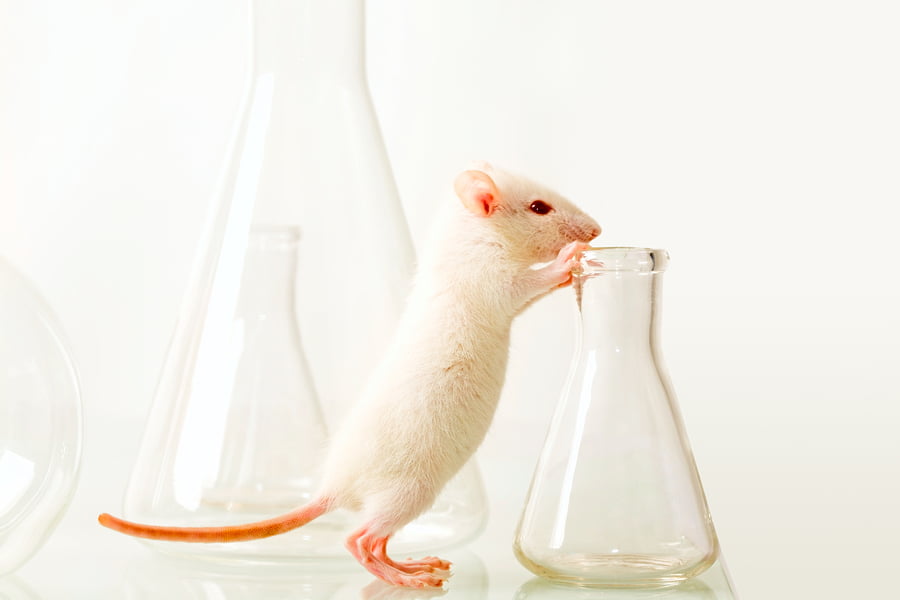Memory performance decreases with age, but a new Israeli study suggests that cannabis can reverse these aging processes in the brain.
Scientists at the Hebrew University and the University of Bonn have shown that older mice were able to regress to the state of two-month-old mice with a prolonged, low-dose treatment of cannabis. This groundbreaking study, recently published in the prestigious scientific journal Nature Medicine, opens up new treatments for dementia.
Slowing down the aging of the brain
Like any other organ, our brain ages. As a result, our cognitive abilities decrease with increasing age. Thus, it becomes more difficult to learn new things, or devote attention to several things at the same time. This process is normal, but can also promote dementia. Researchers have long been looking for ways to slow down or even reverse this process.
Israeli and German researchers have now achieved this in mice. With their short life expectancy (2-3 years), these animals display pronounced cognitive deficits even at 12 months of age.
SEE ALSO: Israeli Researchers Fight Alzheimer’s Disease
The scientists administered a small quantity of THC, the active ingredient in the hemp plant (cannabis), to mice aged two, 12 and 18 months over a period of four weeks. Then, they tested learning capacity and memory performance in the rodents – including, for instance, orientation skills and the recognition of other mice.
Mice that were only given a placebo (the control group) displayed natural age-dependent learning and memory losses. In contrast, the cognitive functions of the animals treated with cannabis were just as good as the two-month-old critters in the control group.
“The treatment completely reversed the loss of performance in the old animals,” the researchers said in a statement.
Sign up for our free weekly newsletter
SubscribeSEE ALSO: Turning High-Tech Into ‘High’ Tech: Behind Israel’s Blooming Medical Cannabis Industry
THC imitates the effect of cannabinoids (the primary psychoactive compound in cannabis) produced naturally in the body, which fulfill important functions in the brain. “With increasing age, the quantity of the cannabinoids naturally formed in the brain reduces; when the activity of the cannabinoid system declines, we find rapid aging in the brain,” according to the research team.
To discover precisely what effect the THC treatment has in old mice, researchers at the Hebrew University, led by Dr. Mona Dvir-Ginzberg and the late Prof. Itai Bab, examined the changes in brains of aged mice treated with THC.
“The THC treatment induced molecular and epigenetic changes, which no longer corresponded to that of untreated old animals, but rather were similar to what we see in young animals,” Dvir-Ginzberg said in a statement.
Turning back the clock
Moreover, the number of links between the nerve cells in the brain also increased again, which is an important prerequisite for learning ability. “It looked as though the THC treatment turned back the molecular clock,” the scientists say.
A low dose of the administered THC was chosen, so that there was no intoxicating effect in the mice. Cannabis products are already permitted as medications, for instance as pain relief. As a next step, the researchers wish to conduct a clinical trial to investigate whether THC also reverses aging processes in the brain of humans and can increase cognitive ability.
Photos: Bigstock, East Foundation
Related posts

Israeli Medical Technologies That Could Change The World

Harnessing Our Own Bodies For Side Effect-Free Weight Loss

Missing Protein Could Unlock Treatment For Aggressive Lung Cancer






Facebook comments